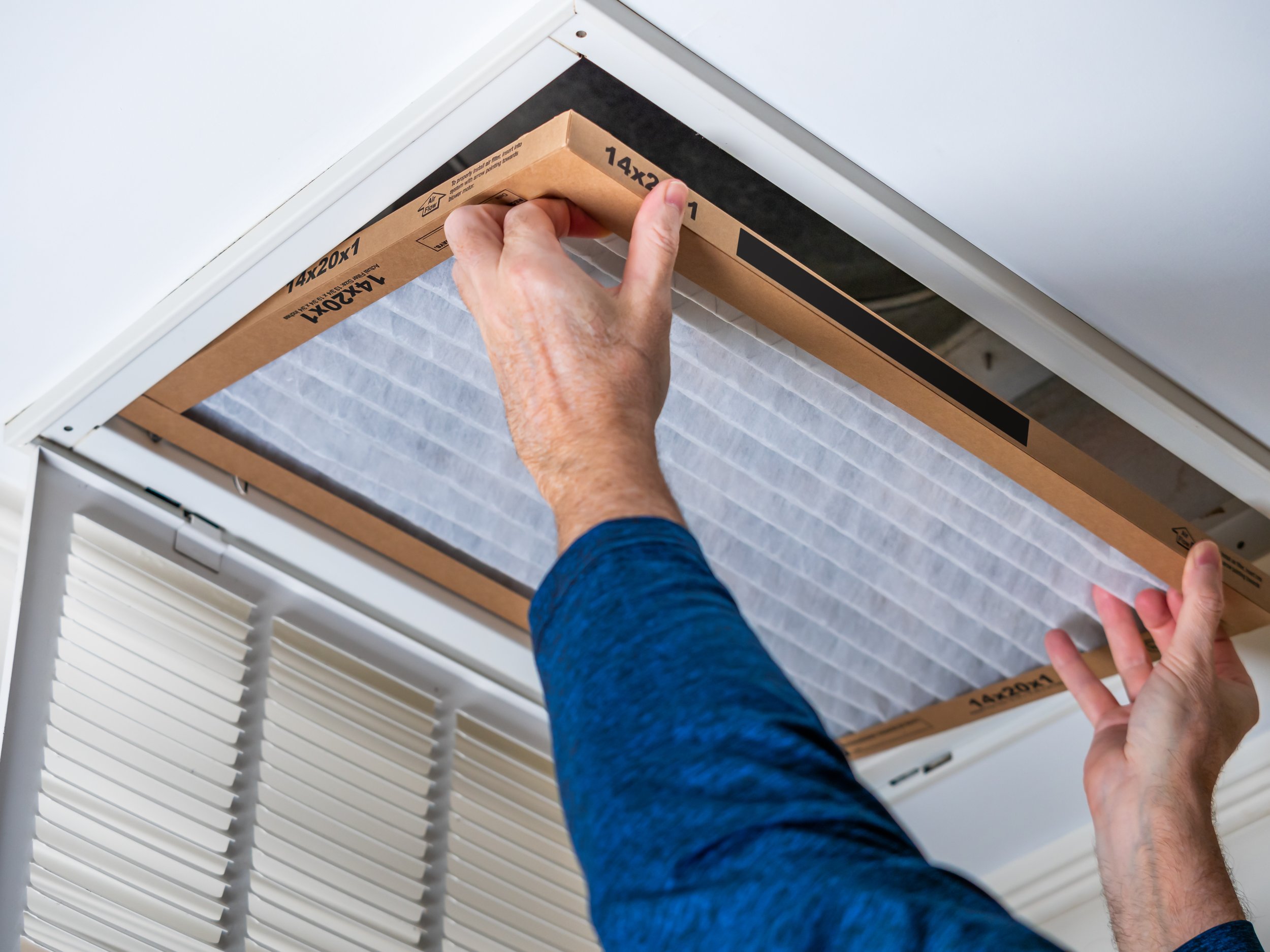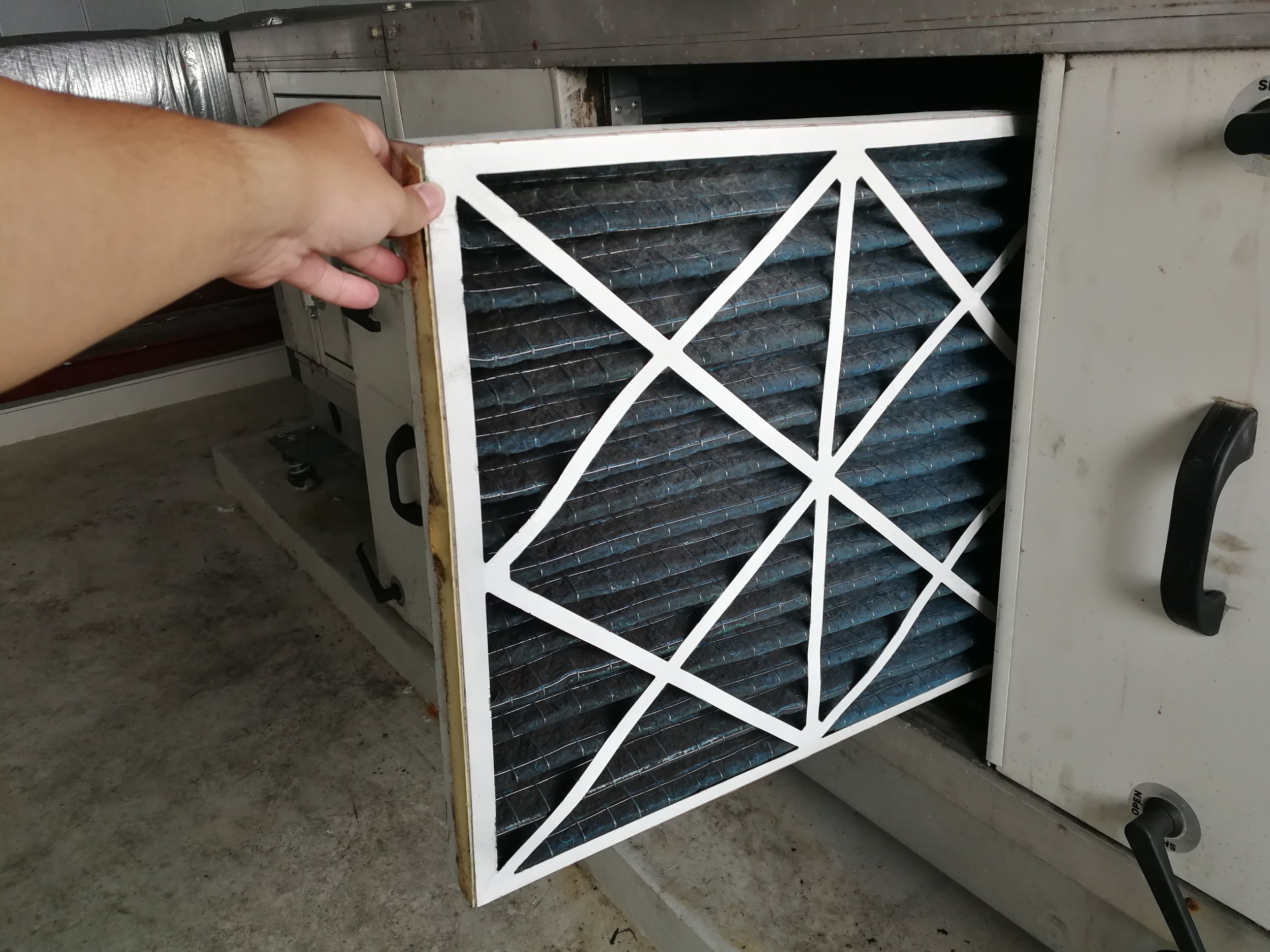Getting Nerdy About Houses - Air Filters
The air filter is one of the most important parts of the HVAC (heating, ventilation, and air conditioning) system to regularly maintain to help aid in property function and longevity of the system. Additionally, frequently changing the air filter will help to keep the air quality in your home cleaner providing a safer environment for living. Changing your HVAC air filter is easy to do, inexpensive, and has a very positive impact on your home and systems.
How does an HVAC system work?
The functionality of a typical HVAC system can be explained simply as, while operating in the cooling function, the system draws in warm air and changes it to cool air. A properly functioning system changes the air that it draws in, cools it to approximately 20 degrees F, and then distributes the cooler air to designated areas around the house. Essentially, depending on the type of system, the same process is replicated during the heating function.
Where is an air filter located?
The air that is drawn into a system is often called a return (as in, the air is returning to the system). As home inspectors, we typically find the air filters installed in a grille located on the ceiling or on a wall. However, there are some systems that have the filter located at the system itself. It is important to follow manufacturing requirements to determine which setup is correct for your system.
Typically, the air filter is located very close to where the system is located within the house. For example, if the HVAC system is located in the attic, the air filter will be located on the ceiling near the placement of the system in the attic. If the system is installed in a closet, the air filter may be located in a wall. Some HVAC systems have the air filter installed directly at the system itself. Many systems have one filter. However, in order to improve airflow to the system, some systems have multiple returns that return air back to the HVAC system. Therefore, systems with many returns will have many air filters.
What does an HVAC air filter do?
At the most basic function, an air filter cleans the air. It restricts dust, pet dander, pollen, mold spores, etc before it enters the HVAC system and distributes the cooled (or heated) air around the house. Primarily, it prevents particles from entering into the system so that it can function correctly and a nice byproduct is that it cleans the air in the home.
How often should I change it?
The general consensus is that air filters should be changed every 90 days. From our experience as home inspectors in Phoenix, we believe that the timeline depends on a number of factors. Some of the determining factors include, are there pets (or many pets) on the property, is the heater operated in the wintertime (some people do not turn on the heat), is your environment dusty, what type of air filters are installed, etc.
We suggest that the cleanliness of air filters is checked regularly, if the filter is dirty, change it. If you use the system frequently, check the air filter every 15 days. If you use the system infrequently, check it every 60 days. It is a great idea to put a reminder on your calendar or on your phone so that changing your air filter is not overlooked (it is easy to do). Personally, I check (and typically change) my air filter on the first day of every month.
What is the best type of air filter to buy?
To answer the question, “What is the best air filter to buy?” There are a couple of variables that must be answered by the homeowner. What does the manufacturer recommend (most important)? What is your budget? How often do you want to change the air filter? Will you remember to change the air filter (I just changed mine as I was writing this, lol)? What are you trying to achieve with the HVAC air filter a) protect your equipment or b) clean the air in your house)?
The functionality of air filters is graded on a scale called the MERV rating. The scale measures between 1 and 20, with the most common residential filters achieving a rating between 1 and 13.
Common choices include:
Disposable fiberglass filters, minimum protection for HVAC equipment: A 1 - 4 MERV rating.
Disposable pleated paper or polyester filters: A 5 - 8 MERV rating.
Electrostatic self-charging cotton or paper fiber filters: A 2 - 10 MERV rating.
Pleated residential filters 2 to 5 inches thick (filters are most commonly 1” thick, this may require an upgraded grill/housing): A 11 - 13 MERV rating.
High-efficiency particulate arrestance (HEPA): A 13+ MERV rating.
The bottom line is there are pros and cons to all HVAC air filters. The ultimate goal is to find the right air filter that balances the elimination of air flow restriction, provides the desired protection for your home, a replacement schedule that can be managed consistently, and a price point that is comfortable. Every homeowner’s needs are different, but the one certainty is that a dirty air filter MUST be changed.
Click the link to download the Getting Nerdy About Houses! PDF




